Each year, members of the community are invited to nominate outstanding Western Australians who are pre-eminent in their field to be considered for induction into the WA Science Hall of Fame.
To be admitted to the WA Science Hall of Fame, an individual must:
- have undertaken a substantial portion of their work in Western Australia;
- have a substantial track record as a scientist;
- be internationally renowned in their field;
- have been instrumental in developing a school of thought and/or policy in WA;
- be engaged in outreach;
- have been influential in the mentorship of others through developing the careers of STEM practitioners; and
- be a member of a learned academy or be of similar stature.
Nominators are encouraged to resubmit nominations for any nominees not inducted into the WA Science Hall of Fame, including any new information or achievements. Suitable Hall of Fame nominations from previous years may be considered in subsequent years at the discretion of the judging panel. If required, JTSI may seek additional information from the nominator.
Enquiries
For further information about the WA Science Hall of Fame please contact Penny Hyland by email at science@jtsi.wa.gov.au or phone on 6277 3070.
2020 Inductee
The 2020 Inductee, Professor Mark Randolph, was announced at the Premier’s Science Awards ceremony on 29 September 2020.
Professor Mark Randolph
Mark Randolph has been Professor of Civil Engineering at UWA for over 30 years, becoming one of the most highly cited geotechnical engineers in the world. Drawn to Perth by the challenges of designing foundations in the calcareous seabed sediments surrounding Australia, he established the world-leading Centre for Offshore Foundation Systems at UWA in 1997 and in parallel was a Co-Founding Director of specialist consultancy Advanced Geomechanics. This symbiotic relationship between academia and industry led to involvement with almost all major developments on the North-West Shelf, as well as many novel design solutions for foundations, anchors and pipelines. Among many accolades, including WA Scientist of the Year in 2013, Professor Randolph was elected a Fellow of the Royal Society of London in 2011.
2019 Inductee
The 2019 inductee, Professor Carol Bower, was announced at the Premier’s Science Awards ceremony on 13 August 2019.
Professor Carol Bower
Professor Carol Bower is an internationally recognised public health researcher. She has worked predominantly with the Telethon Kids Institute (previously the WA Institute for Child Health Research), of which she was a founding researcher and where she is currently Senior Principal Research Fellow, and Director of the Fetal Alcohol Spectrum Disorder (FASD) Research Australia – Centre for Research Excellence.
Throughout her career, Professor Bower led a series of projects which have had a profound impact on the health of children in Western Australia and beyond. In 1980 she established Australia’s first birth defects registry (an internationally recognised model later implemented in other States). She uncovered the link between low dietary folate and neural tube defects (NTD) such as spina bifida, and instigated the world’s first public health campaign to encourage periconceptional folic acid supplementation to prevent NTD. Having led another study demonstrating that health education alone was insufficient, Professor Bower successfully lobbied for national mandatory fortification of flour with folate – a change which has dramatically reduced the incidence of NTDs and saved more than 400 Western Australian children alone from debilitating and deadly birth defects.
Professor Bower has been equally persistent in relation to community outreach, actively forging partnerships with consumers, government, justice and health professionals to facilitate, communicate and translate paradigm-shifting research on alcohol-related harm. This includes her supervision of the recent Banksia Hill Project – the first study in Australia to assess and diagnose young people in a youth custodial setting for FASD. Professor Bower’s dedication to community service is reflected in multiple awards in recognition of her good practice and initiatives relating to consumer and community participation in research.
As a long-serving member of multiple paediatric research committees, Professor Bower continues her contribution to science and the wider community by advancing and sharing research on child health and development.
2018 Inductee
Emeritus Professor David Blair
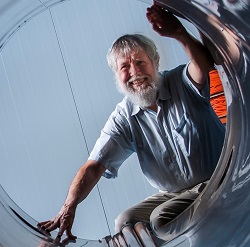 Professor Blair is an experimental physicist renowned for pioneering a number of precision measurement techniques used for ultra-sensitive displacement measurements, exceptionally low noise clocks and oscillators, and gravitational wave research.
Professor Blair is an experimental physicist renowned for pioneering a number of precision measurement techniques used for ultra-sensitive displacement measurements, exceptionally low noise clocks and oscillators, and gravitational wave research.
His career has focused on the direct detection of gravitational waves first predicted by Albert Einstein in 1916 as part of his famous Theory of General Relativity. He led the establishment of the Australian International Gravitational Research Centre at Gingin, part of the School of Physics at the University of Western Australia, and the Australian Consortium for Interferometric Gravitational Astronomy.
Professor Blair’s work at the Research Centre contributed to the international Laser Interferometer Gravitational-Wave Observatory (LIGO) scientific collaboration through developing technology to teach supercomputers to ‘hear’ the special sounds of gravity waves and rapidly detect the signals. He also contributed to the identification and resolution of the issue of ‘parametric instability’ in large US twin detectors at observatories in Louisiana and Washington State, enabling the world’s first direct observations of gravitational waves in 2015. This discovery resulted in a Nobel prize in physics for three leading LIGO American physicists in 2017 and was described as ‘a discovery that shook the world’.
Professor Blair’s research has ensured that Australia, and Western Australia in particular, has a high profile in the international gravitational wave community. He has supervised an impressive 74 postgraduate students since 1987 and his students have gone on to successful careers and senior positions in areas including physics and astronomy.
He also led the planning and development of the Gravity Discovery Centre, a major education and public outreach facility which includes the Gingin Observatory. In 2005, he and Emeritus Professor John De Laeter AO were awarded the Australian Government Eureka Prize for Promoting Understanding in Science in recognition of these science outreach activities.
Professor Blair was the recipient of the Western Australian Scientist of the Year award in 2007, was elected as Fellow of the American Physical Society in 2014, and in May 2018 was elected as Fellow of the Australian Academy of Science, an organisation of individuals recognised for their outstanding contributions to science and research.
After retiring as Director of the Australian International Gravitational Research Centre in late 2017, Professor Blair continues to contribute to the physics community as Emeritus Professor at the University of Western Australia and as the Outreach Program Leader at the ARC Centre of Excellence for Gravitational Wave Discovery. He is currently supervising 10 PhD Students and continues to find ways of communicating Einsteinian physics to the wider community.
2017 Inductee
Emeritus Professor John Pate
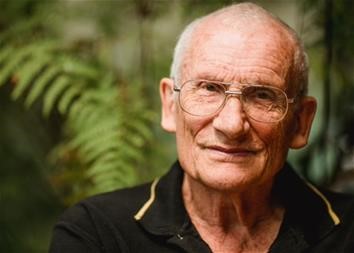 Professor John Pate has greatly influenced plant science, particularly plant ecology and physiology, in Western Australia. His academic career commenced as Assistant Lecturer at Queens University in Ireland in 1954 followed by increasing senior academic appointments including at the University of Sydney and The University of Western Australia (UWA). He was head of the botany department at UWA from 1974 to 1986.
Professor John Pate has greatly influenced plant science, particularly plant ecology and physiology, in Western Australia. His academic career commenced as Assistant Lecturer at Queens University in Ireland in 1954 followed by increasing senior academic appointments including at the University of Sydney and The University of Western Australia (UWA). He was head of the botany department at UWA from 1974 to 1986.
The major focus of his work concerned the carbon and nitrogen economies of plants, especially legumes, and contributed to applied research on the productivity of pastures and crops. Along the way, techniques were developed for quantifying nitrogen inputs of legumes, thereby permitting assessment of their contributions in agricultural and natural ecosystems.
Professor Pate has also contributed significantly to ecological and physiological studies of native Western Australian flora, particularly on the structural and functional adaptations displayed for combating various forms of environmental stress. Professor Pate has published extensively with over 500 publications including books, monographs, reviews and refereed research articles. Professor Pate was also an excellent supervisor of research students. His students recall him as relentless in the pursuit of knowledge about how plants worked and with an energy, enthusiasm and humour that engaged and inspired many.
Professor Pate’s scientific career was honoured by election to the Australian Academy of Sciences in 1980 and to the Royal Society, London in 1985.
2016 Inductee
Professor Ian Ritchie AO
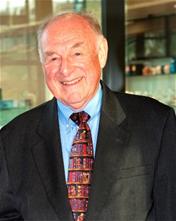
Professor Ritchie was a distinguished scientist, educator and community leader. He was a champion of chemistry and its role in the community, and prominently reshaped the State’s scientific landscape by championing a practical, business-focussed approach to science.
He supported the retention and renewal of the WA Chemistry Centre. As a key government advisor and foundation board chair, he guided its transformation as the now world-class ‘ChemCentre’. He was also instrumental in establishing Perth as an international hub of research in hydrometallurgy. He was the driving force behind the establishment of the AJ Parker Cooperative Research Centre for Hydrometallurgy in 1992, and served as its Director until his retirement in 2001. Under his leadership the Centre grew to become the world’s leading, and largest, organisation for hydrometallurgical research.
He was a founding member of the WA Premier’s Science Council and the Scientific Advisory Committee to the WA Clean Air Council, where he was the first to advocate for a ban on lead in petrol. In 2003 he was the second recipient of the Premier's Prize for Achievement in Science, now the Scientist of the Year award. He was awarded WA Citizen of the Year in 1997, and was made an Officer of the Order of Australia in 2014.
Professor Ritchie passed away on 12 August 2014.
2015 Inductee
Professor Cheryl E Praeger AM

Professor Cheryl E Praeger is one of the world's most highly cited mathematicians and has published over 360 articles and four books.
Professor Praeger is famous for her work on algorithms for computing with matrix groups, especially the Neumann-Praeger SL-recognition algorithm which launched the international matrix group recognition project. Many of her algorithms have been incorporated into powerful computer algebra systems which have transformed the way in which algebra is taught and researched. Her ground-breaking work includes pioneering research into symmetry in graphical models which have far-ranging applications, such as enabling search engines to retrieve information efficiently from the World Wide Web.
She is the Vice President of the International Commission for Mathematical Instruction, and Chair of the Australian Mathematics Olympiad Committee. Past positions she has held include foundation board member of the Australian Mathematics Trust, member of the Australian Research Council College of Experts, president of the Australian Mathematical Society, and Chair of the Australian Council of Heads of Mathematical Sciences.
Professor Praeger promotes and supports the involvement of women in mathematics. The Australian Mathematical Society funds the Cheryl E. Praeger Travel Awards, a travel award named in her honour, designed to provide full or partial support for Australian female mathematicians to attend conferences or to visit collaborators. She also encourages girls in primary and secondary schools with lectures, workshops and conferences.
2014 Inductee
Emeritus Professor Alan Robson AO
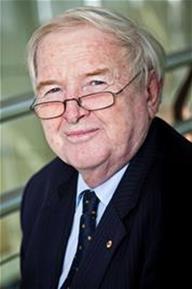
As one of Australia's leading science education figures, Professor Robson has held many distinguished positions including Vice Chancellor of The University of Western Australia. An agricultural scientist, his early research on the mineral nutrition of plants and soil fertility contributed to the prosperity of farming communities and the continued success of the State's lucrative grains industry. He counts his impact on graduate students and their subsequent contributions to science and agriculture as one of his greatest achievements. He has received a number of accolades, including the Australian Medal of Agricultural Science, the Fiona Stanley Medal and Officer of the Order of Australia.
2013 Inductee
Professor Lyn Beazley AO

Professor Lyn Beazley was the Chief Scientist of Western Australia from 2006 until 2013. In this role she was a tireless national and international ambassador for science and science engagement in Western Australia. Professor Beazley undertook her undergraduate studies at Oxford University and her doctorate at Edinburgh University.
Over a 30 year research career she built up an internationally renowned research team that focused on recovery from brain damage. Her research also changed clinical practice in the treatment of infants at risk from pre-term delivery. She was awarded an Order of Australia in 2009 for service to medical science and her contribution to the development of science policy in Western Australia.
2012 Inductee
Professor Stephen Hopper AC FLS FTSE
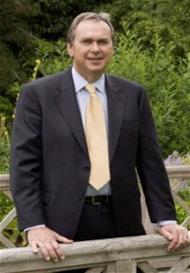
Professor Hopper is an internationally acclaimed plant conservation biologist who has made an outstanding contribution to biodiversity preservation in Western Australia. He has made significant improvements to a number of the State's conservation programs and infrastructure. In 2012 he was named a Companion of the Order of Australia for his service as a global science leader.
Professor Hopper served as the Director of the Royal Botanic Gardens, Kew from 2006 to 2012. In this role he led the development and implementation of a forward 10 year Breathing Planet Program for Kew and its global partners. The Millennium Seed Bank Project was a key part of this program.
2011 Inductee
Dr Bernard Bowen AM

In a long and distinguished career, Dr Bernard Bowen made a significant contribution to fisheries research, marine resource management, environmental protection and radio astronomy in Western Australia. Dr Bowen held the position of Director of the Department of Fisheries for 23 years and chaired many committees in the science field at a state, national and international level.
He played a significant role in the development of the WA Fisheries and Marine Research Laboratories, the WA Wildlife Research Centre, the WA Marine Science Institution and the International Centre for Radio Astronomy Research. In 1991, Dr Bowen was appointed as a Member of the Order of Australia for his services to the fishing industry.
2010 Inductee
Professor Fiona Stanley AC
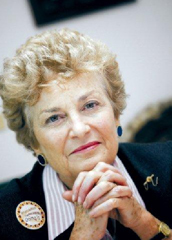
Professor Fiona Stanley is known for her work on Cerebral Palsy and children's health. She is an advocate for the needs of children and their families promotes the importance of using population data to provide significant health, social and economic benefits to the community. She is the founding director of the Telethon Institute for Child Health Research.
The Fiona Stanley Hospital in Murdoch is named in honour of her achievements. Professor Stanley was named Australian of the Year in 2003, was honoured as a National Living Treasure by the National Trust in 2004 and is the UNICEF Australia Ambassador for Early Childhood Development.
2009 Inductee
Professor Ian Constable AO
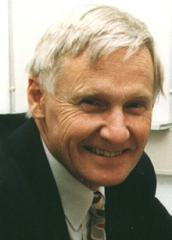
Professor Ian Constable AO is recognised as one of the world's leading ophthalmic surgeons. He is the founder and director of the Lions Eye Institute, now the largest eye research institute in the southern hemisphere and dedicated to the investigation, prevention and cure of blinding eye disease. With Professor Constable at the lead, the Lions Eye Institute has made many ground breaking developments, including the Lions Eye Institute artificial cornea which is granting sight to people around the world.
Professor Constable served on the Premier's Science and Innovation Council and the Western Australia Science and Innovation Council as the Deputy Chair. He is also the foundation director of The University of Western Australia's Centre for Ophthalmology and Visual Science.
2008 Inductee
Emeritus Professor John de Laeter AO
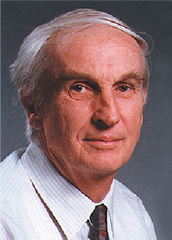
Professor John de Laeter was a physicist who made a significant contribution to science in the State. In addition to leading ground breaking research, he also negotiated several visionary projects. These include the establishment of Technology Park, the Curtin Science and Mathematics Education Centre, Scitech and the Gravity Discovery Centre.
In recognition of his contributions, Professor de Laeter was named an Officer of the Order of Australia, a Fellow of the Australian Academy of Technological Sciences and Engineering and an Honorary Doctor of Technology from Curtin University. Over his long-standing tenure with Curtin University, Professor de Laeter held several senior academic positions, including Deputy Vice-Chancellor of Research and Development. The John de Laeter Centre for Mass Spectrometry was named by Curtin University in recognition of his contributions.
2007 Inaugural Inductees
Scitech

With its mission to increase Western Australian's interest and participation in science and technology over the past 25 years, Scitech was selected as an Inaugural Inductee of the Science Hall of Fame.
Professor Barry Marshall and Dr Robin Warren

Professor Marshall and Dr Warren were recognised for their dedicated service to research when, in 2005, they were awarded the Nobel Prize for Medicine and Physiology. They discovered the bacterium Helicobacter pylori as a cause of gastritis and peptic ulcer disease. Thanks to the pioneering discovery by Professor Marshall and Dr Warren, peptic ulcer disease is no longer a chronic, frequently disabling condition, but a disease that can be cured by a short regimen of antibiotics and acid secretion inhibitors.